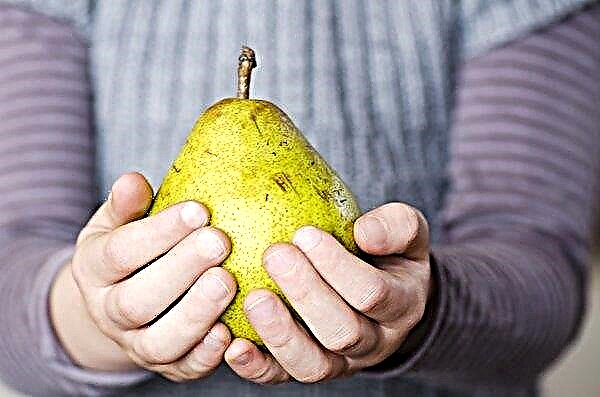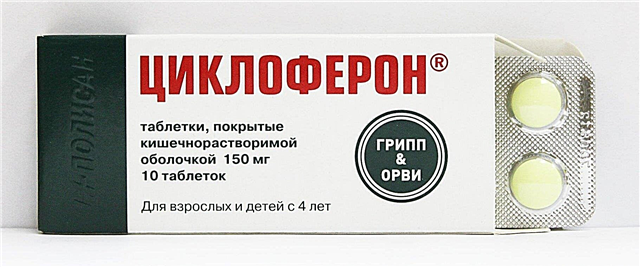
Features of weight loss adolescents
The issue of teenage nutrition is very complex and requires a competent approach. The young organism has not yet formed. However, the existing criteria can no longer be applied to children.
Calorie counting systems for adults also cannot be used. The ratio of proteins, fats and carbohydrates for a child is not the same as for adults.

At the age of 12-16, a restructuring occurs in the body of a teenager: active growth, strengthening of bones, changes in hormones. Usually during this period the child is very busy at school, he attends various sections or does his favorite thing. It takes a lot of energy to complete all these familiar activities.
Where does the body get energy for active growth?
First of all - from protein foods. It is very important for a teenage body to get quality protein. Eating only chicken, avoiding fish is wrong! Various protein foods must be present in the diet.
A lot of high-quality and complete protein is found in lean beef, chicken, turkey, fish. Be sure to consider the intake of vegetable protein. It is more easily absorbed by the body and well-nourished.

Many children categorically refuse fish or chicken stew. What is their taste? Modern teens are more likely to choose a juicy hamburger or KFC fried chicken. Of course it tastes much better. But what benefits does such food bring to the body? Nothing worthwhile - other than the vast amount of processed trans fats. They are dangerous in that the liver can no longer cope with utilization and begin to put them in reserve. So even a physically active child begins to easily gain excess weight. Add in a lot of hidden salt and a lack of vegetables - the result is obvious! The entry "obesity" appears on the medical card.
The second most important source of energy in the diet of adolescents is carbohydrates. They saturate the body for a long time, allowing you to feel full for many hours. All carbohydrates are divided into fast and slow. The former include sugar and flour, as well as all products that include them. These are chocolate bars, sweets and other joys so beloved by teenagers.
Rapidly absorbed into the bloodstream, they instantly raise the sugar level to a critical level. In response, insulin synthesis is triggered. - a special hormone that must deliver sugar (glucose) molecules to every cell in the body.

With an excess of fast carbohydrates, insulin does not have time to do its job, so after a while too much sugar is formed in the body. Our body hides everything for a rainy day, like a smart machine. Where is the easiest place to hide? Of course, into adipose tissue. This is how adolescent obesity occurs.
Unfortunately, teens don't like slow carbohydrates. These are cereals (mainly from whole grains), pasta from durum wheat. Having eaten a plate of oatmeal or buckwheat porridge, a person will be full for several hours. Why it happens? If we compare slow carbohydrates to a steam locomotive, it can be noted that they consist of several small wagons. When the "locomotive" enters the liver, it is slowly disassembled into separate "wagons". This does not happen very quickly, and after such a meal you do not feel hunger for a long time.
Unfortunately, the percentage of slow carbs has dropped significantly. They make way for the fast ones. In economically developed countries, this has led to a significant increase in obesity and diabetes.

Fats are also very important for a teenager (but not as much as for an adult). It is important to consider here that the child should receive them from an early age.
From animal fats, you can choose butter. Be sure to focus on the daily intake: no more than two teaspoons a day! Vegetable fats can be anything. The diet will perfectly complement olive or plain sunflower oil. Doctors calmly allow them for nutrition. The main rule of use is not to exceed the daily rate!
About what Dr. Komarovsky thinks about losing weight at home, see his program.
Principles of dieting at home
It is worth noting that the diet for adolescents should be functional and balanced. Any deficiency or excess of nutrients can cause metabolic disorders. It will not be possible to correct the broken exchange on your own. It is important here to consult a children's nutritionist in time.

How can you normalize weight at home?
Limit all fast carbohydrates in the diet, preferring slow ones. For breakfast, the child is better off offering a plate of porridge with a little butter. The best food for excellent students is oatmeal. For athletes, buckwheat porridge is ideal. You can add milk, fruit or honey to it. The intake of slow carbohydrates in the morning will be a signal for the brain: it's time to wake up and work!
All sugary carbonated drinks are strictly prohibited. They have too much sugar in them. Very quickly absorbed into the bloodstream, they contribute to a strong release of insulin. Preference should be given to unsweetened homemade compotes, tea. Packaged juices are also not a good choice. It is better to replace the packaged drink with plain clean water. Drinking a clean liquid will help clear acne from your skin. The body will get rid of unnecessary substances better, and it will become cleaner and fresher!
Adequate fiber intake. It is found in vegetables, fruits, berries. It is an excellent nutritional component. Fiber expels all harmful substances from the body. If a child eats a fried cutlet with vegetable salad, it will do more good than just meat.
Limiting the amount of food fried in oil. Such food is sheer harm! It quickly leads to weight gain, and at an older age sometimes becomes the cause of serious illness. Improper habits and obesity can lead to problems with the cardiovascular system, diabetes.
Physical activity. Unfortunately, today's youth has started to move less. With the advent of electronic "assistants", many household tasks no longer cause great difficulties. Increasingly, teenagers prefer to surf the Internet or play computer games, rather than running in the yard. Unhealthy diet plus lack of exercise leads to obesity.
The most problematic places
There are the following types of obesity:
"An Apple". This type of obesity is more common in adolescent boys. Fat is deposited in the abdomen and thighs.
"Pear". Girls are more susceptible to it. With such obesity, the buttocks and hips increase. The abdomen is relatively flat.
Is it worth chasing a quick effect?
A very common mistake of all people who want to lose weight is to use diets aimed at fast weight loss. It is very easy to find forums promoting weight loss of up to 10 kg per week (especially before the beach season or after the New Year holidays). So it is absolutely impossible to lose weight!

The psyche of a teenager has certain characteristics. Improper eating habits can form very quickly. You should not drastically reduce the amount of nutrients, so only the actively growing body will be harmed!
Diets that promise you a weight loss of up to 15 kg in 3 months is just real sabotage! This is a lie. Yes, it is quite possible that the kilograms will lose. But it will not be adipose tissue at all, but water, muscles. The body donates them immediately after the onset of a stressful situation.
An unbalanced diet is a powerful stress for the body. Usually, after graduation, a child who still has previous habits can easily gain the lost pounds. Often the weight becomes even more than it was before.

Any light and effective diet requires proper nutrition.
Normal weight loss is no more than 2-3 kg per month. Such diets will definitely relieve you of excess weight, you just need to correctly combine various healthy foods in the menu.
How to lose weight without harm to health?
The safest diet today is proper nutrition. Doctors say that it is absolutely safe. This is the only correct way to normalize your weight.
When considering a diet, keep in mind the following:
- The correct ratio of protein, fat and carbohydrates. The body of a teenager needs 30-40% proteins, 20% fats, the rest - carbohydrates.
- Product processing. It is better to stew or bake all dishes. Fried should be discarded.
- Eating healthy foods every day. The American Dietetic Association recommends eating at least 5 different fruits every day. This is a great alternative to unhealthy sweets. This way you can significantly save on trips to the dentists.
- Adequate amount of clean water. There are no strict recommendations. It all depends on physical activity, region of residence. In hotter countries, you need to drink more water. Children who attend sports clubs should also consume more fluids than less active children (at least 1.5 liters per day). Sweet carbonated drinks do not count!

Should you buy special pills?
Only a doctor can decide whether medications are needed to treat obesity. It is strongly discouraged to use such medicines at home!
Find out as much as possible about side effects, contraindications. Before using many medicines that are used for obesity, a preliminary examination must be carried out. The doctor prescribes a complete blood count and urine test. Only then does he select the appropriate medicines.

Which products should you say yes to?
First of all, low-fat protein foods. These are chicken, fish, seafood, pork, beef. It is imperative to eat fermented milk products: fresh cottage cheese, kefir, etc. It is better to choose yoghurts that are not very sweet, without the addition of artificial colors and preservatives. The combination of fermented milk products with berries and nuts is a great option for breakfast before school!
It is very important to consume fresh fruits and vegetables. For a child's body, you can choose any options. The main key factor will be the absence of allergies to a particular product.

Which products should you say no to?
All fatty and fried foods, fast food, chocolate bars and soda are strictly prohibited! Limit the consumption of fatty meat. It is difficult for the body to absorb and, when consumed with various sauces, easily leads to weight gain. Pork skewers can be called men's food, not teenage food!
All fatty sauces based on mayonnaise should also be excluded. They usually do not contain any healthy vegetable fats. There are too many additives in them. Better to make mayonnaise at home or season the salad with olive oil. Polyunsaturated acids will have a beneficial effect on the entire body as a whole.

Sample menu for a week
The daily diet must necessarily include breakfast, lunch, dinner and a couple of snacks. Such nutrition every 3-4 hours will allow the body to work actively all day. A teenager needs much more energy to succeed in school and attend various sections.

For a weekly menu, choose one of the suggested options for each meal. There are 7 possible combinations to choose from.
Breakfast
Buckwheat porridge with milk, green tea.
Oatmeal with banana and walnuts. Cocoa with milk.
Curd casserole with raisins. Dried fruits compote.
Egg omelet with tomatoes. Sandwich with one teaspoon of butter. Black tea.
Pancakes with curd. Cranberry juice.
A sandwich with boiled chicken breast and tomato. Tea or cocoa.
Yogurt with fresh berries. Low-fat cheese sandwich. Green tea.
Dinner
Chicken noodle soup. Whole grain black bread. Lingonberry fruit drink.
Soup with meatballs in low-fat broth. A fresh vegetable salad. A slice of whole grain bread. Fig compote.
Cauliflower cream soup. Chicken cutlet with fresh cucumber. Tea.
Fresh cabbage soup in low-fat pork broth. Whole wheat bread. Dried fruits compote.
Fresh white fish soup. Turkey casserole with carrot salad. Berry fruit drink.
Pike perch cutlet with baked vegetables. Fresh cabbage salad with vegetable oil. Tea.
Baked chicken with zucchini and carrots. Boiled beetroot salad. Kissel from strawberries.
Dinner
Fish cutlet with fresh vegetables. Tea.
Durum wheat pasta with tomatoes and mozzarella. Sea buckthorn compote.
Meatballs with boiled rice. Tomato and onion salad, seasoned with vegetable oil. Berry compote.
Chicken pilaf. Carrot salad with apple. Pear compote.
Chicken casserole with vegetables. Unsweetened jelly
Beef cutlet with buckwheat. Fresh vegetables on request. Apple juice.
Baked trout with mashed potatoes. Cabbage salad. Unsweetened tea.
Fresh fruit or nuts are good snacks. You can also take a carrot to school with you. Such an unusual snack will be a great second breakfast.
Fermented milk products are also great. Yogurt in a jar is very convenient to carry and put in a backpack.

Frequent problems
If the wrong and unbalanced diet is chosen, the consequences of losing weight can be unfortunate.
With a lack of nutrients, the stress response mechanism is triggered. All systems and organs seem to fall into a "waiting" mode. The metabolism is reduced so that energy is sufficient only for the most important vital functions. These include breathing, heartbeat.

All other systems will experience a pronounced energy deficit. Organs stop working as usual, and violations appear. If you do not intervene at this stage and do not correct the process of losing weight, it is quite possible that later any chronic diseases will appear.
Often, losing weight girls lose their periods. The body simply does not have time to react to the changed conditions. Hormonal balance is disturbed. Girls are rapidly losing weight, irritability and anxiety are growing.
If the process is delayed, mental disorders already appear: anorexia develops. Usually girls face such a disease. Seeking "ideal" parameters, they artificially limit themselves to food. They usually do not stand it for a long time and, having lost it, gorge themselves. Then they induce vomiting. These symptoms are very dangerous! In such cases, specialist intervention is required.
A whole team of doctors will work with the girl: nutritionist, psychologist, pediatrician. They will help you make the right diet and correct the onset mental disorder.

Tips
To normalize your weight without harming your health, follow a few simple rules:
Follow the principles of good nutrition. The diet should be varied, complete, balanced in essential nutrients. Drink enough water for your lifestyle and activities. Include fresh fruits and vegetables in your teen's daily menu.
Eat at a specific time. 4-5 meals every 3-4 hours. Be sure to start your day with a full breakfast. Before going to bed, you can eat cottage cheese or drink a glass of low-fat kefir.
Exercise or moderate physical activity. Given the peculiarities of the adolescent psyche, forcing a child to engage in a certain type of sports activity without his desire is an absolutely useless thing. You need to choose exactly the direction where he will feel comfortable. For every workout, the child should walk with desire. In this case, his emotional system will be in order.

Eating habits are formed from early childhood. They play a very important role all their lives. By adjusting the diet, you can achieve wonderful body work. This will ensure health and weight loss for years to come!
For tips on how to lose weight, see the video below.



